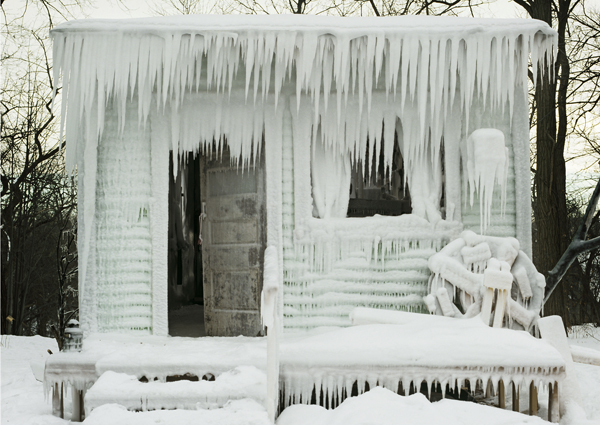There is no word for emergency after the body
wilts. Creeping willow, pillowsheet, last lamp
left lit
before the blizzard’s heart beats out—
the ghost who walks west from the lightning
field walks above the frost.
Skin paled as a peeled winter
onion, it reveals as any mirror making the top
of a toy lake does—black under her chin, the lost
eyes lanced with light. She has forgotten how to live
according to our hours. Love is only taking
its sweet time
to come back to us, the cold-
country women said when asked how many
seasons until she would return home to us
again.
Let us have a way to say
daughter without meaning, in some manner,
missing.
And yet, last year, when the night began
to disappear only after lasting
first through days and days,
the girl left the knot garden, chasing a fox
into its shadow. Her bones were as useful
in the snow as a net in wind. And by dawn
she was buried to the waist in purple rime.
A child who wanders is no one’s fault
but her mother’s,
her father hissed, snow flocking
on the sill like a white frock left for the iron.
They passed the weeks by counting the moon
as it disguised itself each time a little stranger.
Painting its lips.
The clouds had their sad canon
of storms to bring, that would bring her
specter. Women at the edge of the village watched
how close the dirt can come to listen. Dark nantles,
then pierces. Even in nightmare we comply
with what the sleeping
body tells us
and nothing more: a thing cannot be beautiful
until—like the ice crusading from the sky—
it’s stopped. And frozen there
is captive to the eye.
Listen:
Sarah Crossland likes to write poems about dead people, holiness, roller coasters, and love. The recipient of the 2012 Boston Review Poetry Prize, a 2013 AWP Intro Journals Award, and the 2013 Pablo Neruda Prize, she is currently working on a book about disguises and forgeries called Impostress. She lives in Charlottesville, Virginia, and you can read more of her poetry at sarahcrossland.com.
Feature image by Chris Larson, Deep North, 2008
